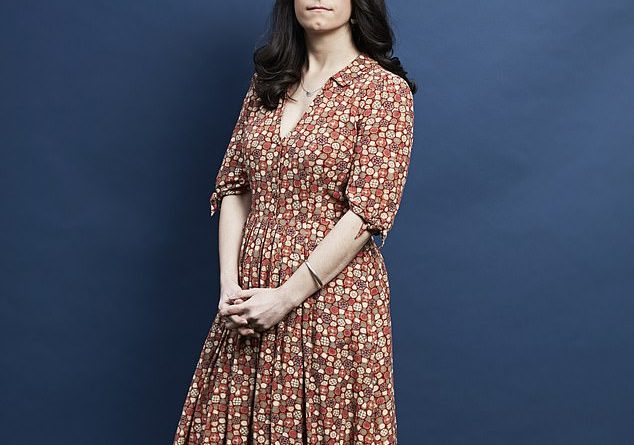The searing hatred felt by women who can't join the mums' club
Alexander and I decided to have a baby when I was 26 and he was 31. We’d been together for six years and on the subject of children we were, and always had been, agreed.
So, one evening, I took the last of the pills I’d swallowed daily for years and threw away the rest. Each month I awaited the fruits of our labour. My body was a machine, built for exactly this purpose; it was only a matter of time. Tick tock, tick tock.
Time passes but nothing happens. I am still young but already we are statistical outliers — not among the 84 per cent of couples who, according to the NHS, will conceive in the first year of trying.
In 2014, I am introduced to another statistic I’ve previously given no thought to — that at least one pregnancy in four ends in miscarriage. After more than 12 months of trying — after, at last, a thrillingly positive test — my first pregnancy ends at just eight weeks in a sudden gush of blood and a scan revealing an embryo with no heartbeat.
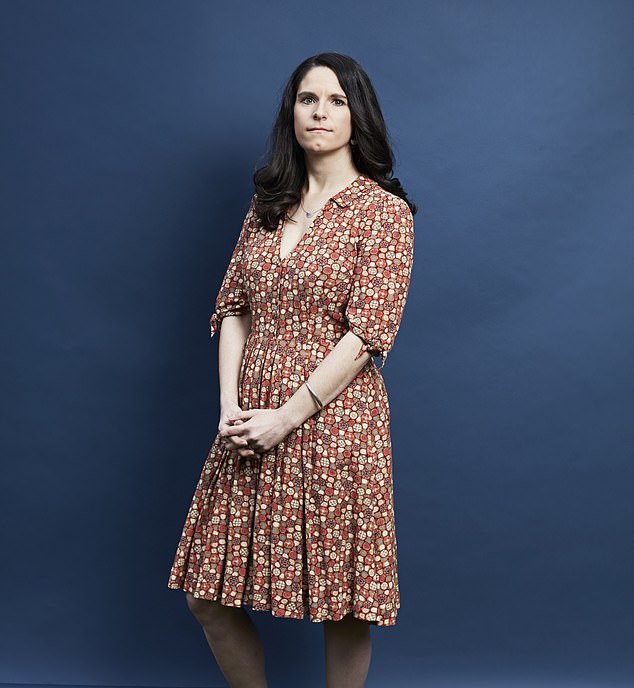
Miranda Ward (pictured) shared the emotions women who are trying for a baby experience when surrounded by mothers
We carry on trying. Month after month after month. Sometimes in the mornings I lie in bed and think my body is not working properly, that it is a faulty machine.
Then, shortly after my 29th birthday, I have a second miscarriage. That’s when the fear begins in earnest. Fear that I will never have a baby. Fear that this will keep happening, even though, as people remind me, at least I know I can get pregnant, at least I’m still so young.
By spring 2016, three years after we started trying, it seems like everyone is pregnant. The schoolmate on Facebook, the friend of a friend at a dinner party who delicately declines the homemade chocolate mousse ‘just to be on the safe side’. The woman on TV, the woman on the bus, the woman from the pool who stops swimming for a while then reappears, her belly small but distinctly round, telling a friend: ‘It’s a boy!’
Maybe it’s just the season, the way the air feels moist in a way that promises life, like a kiss — but it seems to me an epidemic of catastrophic proportions. Is no one else worried? Where did they all find the time to have so much sex?
Does the world really need that many more people? Couldn’t they at least pace themselves a little, stagger it? Do they have to rub their bellies in so self-satisfied a way, unconsciously, maliciously, as they talk to me, as they wait to be seated at a restaurant, as they cross the road?
Uncharitable, true. Unfair. A gross exaggeration. But still.
Why is it so hard for me? I have become selfish and boring, because I can only think of one thing: I am not pregnant and they are. If I look in the mirror I see that I do not like this person. I do not want to roll my eyes at every ultrasound image on Facebook, every twee announcement, and feel it like a stab in the chest.
I do not want to hate, actually hate at times, strangers who bear me no ill, who do not — and perhaps this is the problem — seem to notice me.
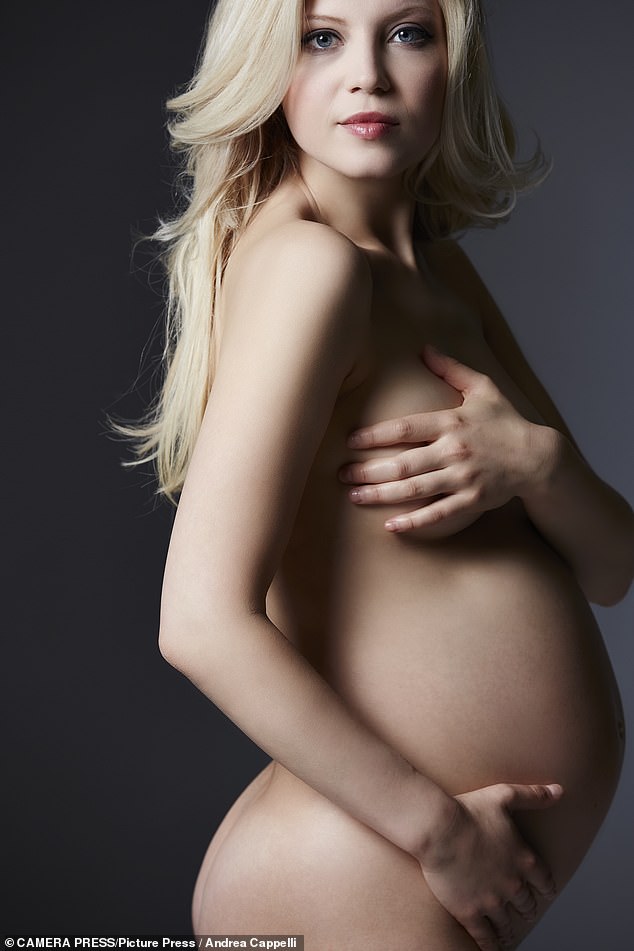
Miranda said one night her partner Alexander came home from work upset, after a colleague announced she was pregnant (file image)
I do not want to zoom in on Instagram photos, looking for the beginnings of a bump, to read too much into every drink declined, to parse every sentence for clues, to feel heavy with perpetual dread that someone I care about, someone for whom I should be happy, is on the cusp of revealing a pregnancy.
Yet I do — I can’t help it. I wonder what it would be like to feel nothing but uncomplicated joy every time an acquaintance or a relative or a celebrity reveals they’re pregnant.
What would it take to overcome my self-obsession, to see beyond or, better yet, entirely independently of my relationship with reproduction?
Perhaps if I could do this I could also somehow forgive myself for a failure and a lack that, logically, I know I have no control over.
One night, Alexander comes home from work. A colleague has just announced that she is pregnant. He is upset. I’ve never seen him like this; this is usually my territory — the rage, the envy, the irrationality of a response you have no control over.
How often has he said to me, in sympathy, in frustration: there’s no point getting angry about it? Now he says: I know it’s irrational, but I can’t help it. I think, as many people do about their partners, that Alexander would be, will be, a truly wonderful parent, and it seems during my darker forays along this line of thought that I have somehow deprived him of this opportunity.
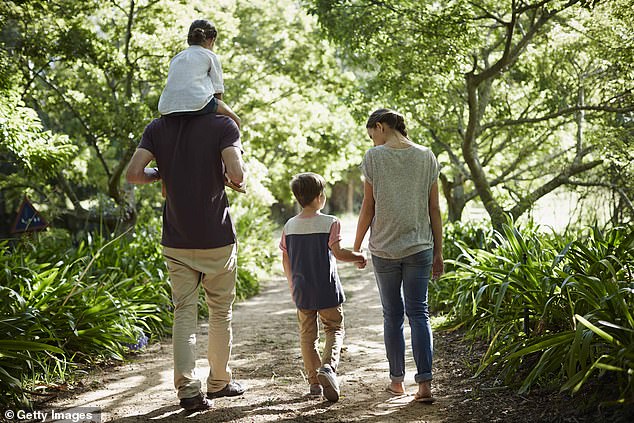
Miranda said in anger, she told her partner to leave and find another woman (file image)
In anger, in spite, I have once or twice said to him that he ought to leave, or at least ought to feel free to. Find a woman for whom this is easier. A real woman, I have said. Get on with your life. Maybe I have even meant it, in the moment. Maybe I have even wanted it. I cannot escape the whims of my own body: he can.
That summer, I suffer an ectopic pregnancy, and undergo emergency surgery to remove my left fallopian tube. The statistics become more exclusive still — just one per cent of women will suffer three pregnancy losses in a row.
While I watch my friends getting married, buying houses, celebrating pregnancies, my life feels fuzzy, without definition, without movement.
It isn’t littered with our child’s toys, it isn’t baby-proofed, it isn’t breathlessly busy days and sweetly sleepless nights. It isn’t what I expected. This isn’t the plan, path or place we were meant to find ourselves.
Over the summer, I am responsible at work for helping to organise a picnic in the park, partners and children welcome. I am an anomaly in the company: the only female employee, and one of few without children.
At the picnic the wives seem to form a cluster while their children clamp round their legs. One has just had her second child, a little boy she holds in a sling who sleeps through most of the afternoon. When he wakes, he is passed ritually among the other women. One of them, newly married, is praised particularly for the way she holds him. A natural.
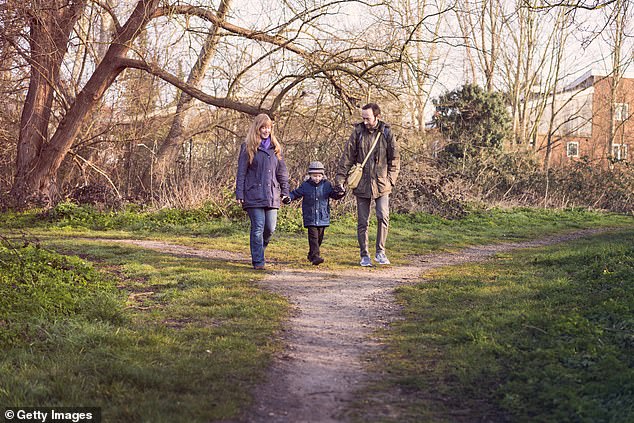
Miranda admits she has come to hate ‘mumsy mums’, who are seen glancing at their baby every few seconds (file image)
I am pointedly not handed the baby, not even when I am closest to the mother and she needs to give him to someone so she can take her turn at boules. I have never been called a natural. I think: they can see. They can tell. I must give off a whiff of desperation, of unmotherliness. I swallow a sip of warm canned lager. I hate them; I want to be them.
There’s a certain kind of mum, a mumsy mum, that I have come to hate. There she is, in the pub, in the park, in the sandwich shop, rolling her pram patiently back and forth while she waits, glancing at her baby every few seconds, as if it might disappear, as if it might, in those gaps between glances, cease needing her so intensely, so viscerally.
She wears clothing that doesn’t fit her well any more, too tight or too loose, or clothing clearly purchased for practicality. Her hair is in a ponytail, though wisps have escaped. She makes regular little public performances of Competent Motherhood.
My least favourite is the ostentatious nappy sniff. She lifts the baby out of the pram, or out of the arms of a friend or the father, and presses her nose to the white puff of its bottom. Sniff, sniff: audible from across a crowded room.
If the baby has done a poo, which invariably it has, she will turn her head away suddenly, screw up her face. ‘Whew!’ she’ll say, then disappear, but not without making a fuss, without making extravagant motions to extract wipes and nappies from an overstuffed bag.
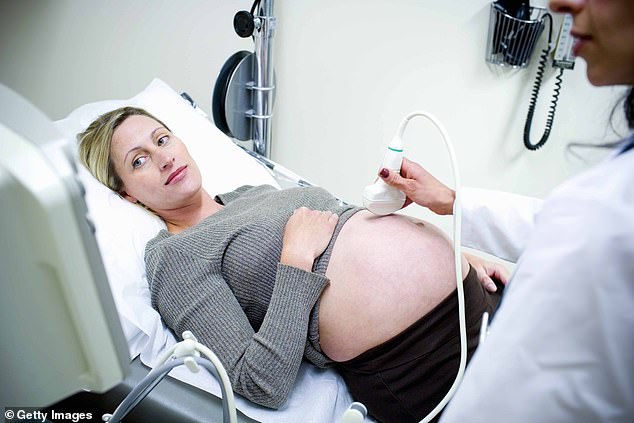
Miranda said the first time she was pregnant, she felt an affinity towards other women who were pregnant (file image)
To her friends, who are also mumsy mums, she will describe notable bowel movements. She will bemoan the changes in her life, the lack of sleep, the lack of hours to get everything done.
She will do this in a way that manages to make her seem simultaneously sad and smug. I will sit at a table near them, and their conversation will drown out whatever I am thinking. I feel they see straight through me, by which I mean they do not see me at all, by which I mean that they see a woman of their own age and social standing without a baby, without a belly, and therefore without value, without utility.
I remember that the first time I was pregnant, brief as it was, I felt an affinity, a reaching out, towards other women who were pregnant — I wanted to draw them closer, to identify them, and for them to identify me, to form a kind of unspoken fellowship.
Now I feel the opposite, as if I repulse everyone, and everyone repulses me. The way I look at the woman with her nose pressed to her baby’s bottom is mean, and deliberately so. I know I am creating my own distance, facilitating my own disappearance. I know it isn’t fair, or right. But what good is ugliness if all we do is keep it to ourselves? What good is pretending?
The truth is this: I have flattened and oversimplified those mumsy mums for my own appeasement.
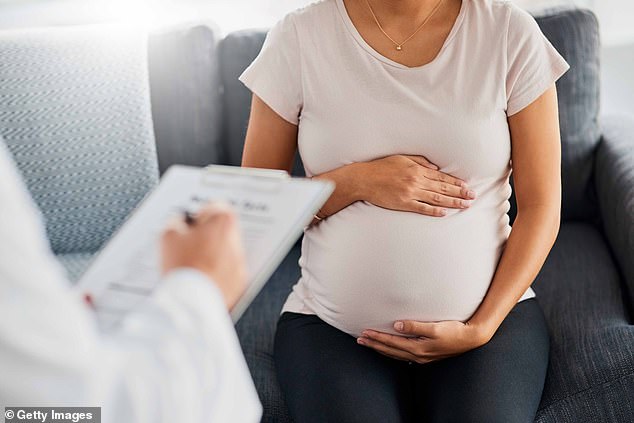
Miranda said she has not conceived again, despite investigations revealing nothing obviously wrong with her (file image)
It is too difficult to acknowledge their own internal complexities, the things they’ve abandoned unwillingly, the possibility — the likelihood — that what they see in the mirror is not what I see from across the cafe, is not what they expected to see, or wanted to see, or like to see.
It is sometimes too much of a stretch of imagination, too great an act of empathy on an angry stomach, to see the universality of the fear, of the loneliness, to see how the way they position their prams is done with both care and external anxiety, that they don’t want to inconvenience people, or get in the way, or that when the baby is finally asleep a great relief, for a moment, washes over them.
By the summer of 2018, two years after the ectopic pregnancy, despite investigations revealing that nothing is obviously wrong with me, I have not conceived again, and we become eligible for an NHS-funded round of IVF.
I become pregnant again six months later. It goes well until it doesn’t. At my 12-week scan, we finally see the image of a baby I’ve seen so often posted to Facebook or Instagram — limbs, belly, a button nose — but once again no flashing heartbeat.
The nurses seem embarrassed. They leave the room briefly, to give us time to collect ourselves, although we are already pretty well collected, in my opinion: we have become good at absorbing bad news in these intimate, compromising positions. I wipe the gel from my belly and bury my head briefly in Alexander’s chest.
The next day — Mothering Sunday, as it happens, a detail that in a novel or a film might feel overwrought — the bleeding I’ve been experiencing intensifies, and quickly, yet again, it is all over.
Adapted by ALISON ROBERTS from Adrift: Fieldnotes from Almost-Motherhood by Miranda Ward (£16.99, Orion) out on January 21. © Miranda Ward 2021. To order a copy for £15.12 (offer valid until January 14, 2021; free P&P), visit mailshop.co.uk/books or call 020 3308 9193.

